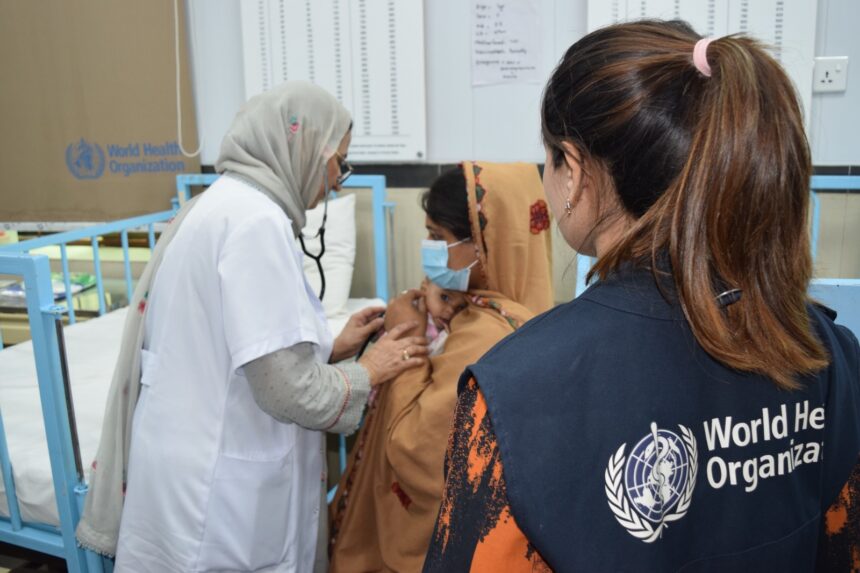The World Health Organization (WHO) has raised concerns over low exclusive breastfeeding rates in Pakistan, warning of significant public health and economic consequences. Only 48.4% of infants under six months are exclusively breastfed in the country, falling short of the World Health Assembly’s goal of 60% by 2030. This gap results in estimated annual losses of $2.8 billion and is linked to thousands of preventable deaths and illnesses.
Data from Nutrition International highlights the far-reaching impact of low breastfeeding rates in Pakistan. Each year, over 33,700 deaths, 6.6 million child diarrhoea cases, and the loss of 2.7 million school years are attributed to inadequate breastfeeding. Meanwhile, the nation spends more than $888 million annually on breastmilk substitutes, which do not offer the same health benefits as breastfeeding.
Emphasizing the theme “Prioritize breastfeeding: Create sustainable support systems,” WHO highlighted that breastfeeding not only ensures a baby’s health, development, and survival but also serves as the infant’s first vaccine, protecting against diseases such as diarrhoea and pneumonia. The organization pointed out that promoting breastfeeding can generate $35 in economic returns for every dollar invested, underscoring its long-term benefits.
Dr Dapeng Luo, WHO Representative in Pakistan, reaffirmed WHO’s commitment to supporting mothers and strengthening public health through breastfeeding initiatives. In collaboration with the Government of Pakistan and other partners since early 2024, WHO has provided breastfeeding counseling to over 172,000 mothers at 157 nutrition stabilization centres nationwide. Additional efforts include training more than 700 healthcare workers, supporting legislative measures to protect and promote breastfeeding, establishing lactation management rooms, developing guidelines and training materials, and advancing the Baby Friendly Hospital Initiative.
WHO urges all stakeholders to prioritize breastfeeding as a key strategy to improve child health, reduce preventable deaths, and strengthen Pakistan’s future workforce and economy.











